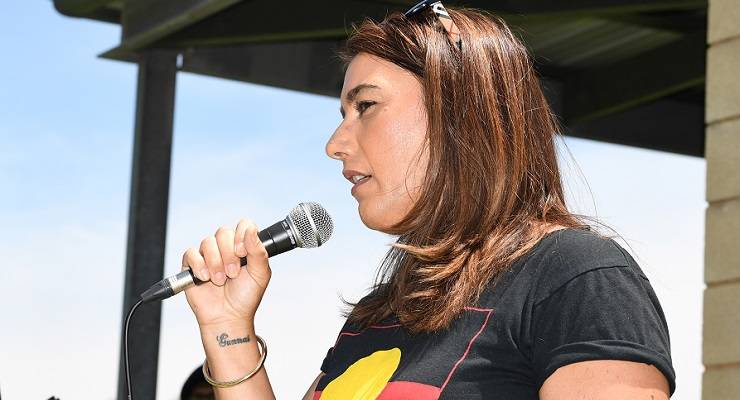
As the dust settles on the Black Lives Matter protests across the country, it is worth contemplating the potential Australian impacts flowing from George Floyd’s murder in Minneapolis.
The push to change Australia Day will gain momentum, as will community and political support for the voice to parliament campaign, along with treaty proposals such as what is being pursued by the Victorian government.
Another early impact is likely to be the delay of Julian Burnside’s career in federal parliament.
Burnside was considered an early favourite to win the hotly contested preselection process to succeed Greens leader Richard Di Natale as a Victorian Senator.
However, Floyd’s murder and the global convulsions which have followed now see proud Indigenous woman Lidia Thorpe as the favourite to win the preselection with Burnside likely to finish second in a strong nine-person field which also includes Darebin deputy mayor Susanne Newton and former City of Melbourne councillor David Risstrom.
Unlike the Victorian Liberals, which have indefinitely delayed the preselection challenge by former soldier turned barrister Keith Wolahan against Kevin Andrews in Menzies because it will require around 300 people to spend half a day in a room together, the Greens pushed ahead with a fully electronic ballot involving its circa 4000 Victorian members who were signed up on March 19.
There were five online candidate forums between May 10 and June 2 when the two weeks of voting started. Members have until the end of this week to vote, with an announcement expected early next week.
The timing of the biggest Black Lives Matter explosion in decades has proved fortuitous for Thorpe, the long-time Indigenous campaigner who only joined the party a few months before a storming preselection victory to become the Greens candidate in the 2017 Northcote state byelection.
She proved a highly effective and appealing campaigner who delivered an 11.5% swing and a shock victory over Labor. This was despite Victorian Premier Daniel Andrews spending big and launching a raft of Green-friendly policies during the campaign such as political donations reform, new laws supporting renters and belated support for the North Richmond supervised injecting facility.
However, after just a year in parliament, Thorpe lost her seat to Labor’s Kat Theophanous in the 2018 Labor landslide.
This was partly because the Darebin Greens, Australia’s biggest Greens branch with close to 600 members at the peak, degenerated into a personality-driven factional mess.
The endless infighting eventually drove the resignation of several high-profile members such as former Darebin mayor Kim Le Cerf, and Alex Bhathal, Thorpe’s original Northcote sponsor and the six-time Greens candidate in the federal seat of Batman (now Cooper).
Thorpe handled the parliamentary defeat with grace, stayed above the factional fray and has remained active in the campaign for better treatment of Indigenous Australians including through her current role as the Indigenous program lead in Australia for Amnesty International.
Her pitch to preselectors is compelling and after the murder of George Floyd it is hard to argue with this element of her platform:
The Greens are the only major party without a federal Aboriginal MP. This needs to change. My Aboriginal brothers and sisters need a voice from the First Nations in Canberra.
Burnside is also a compelling candidate, but for very different reasons, and many Greens members are hopeful that he will defeat Josh Frydenberg in Kooyong at the election to be held in 2021-22.
Indeed, some strategic Greens members are making the calculation that it would be better to put Lidia Thorpe into the federal parliament now, a symbolic move that would turbo-charge political advocacy for Indigenous Australians, while saving Burnside for the bigger job of winning Kooyong, assuming that he runs.
Frydenberg’s Kooyong primary vote tumbled 8.24% to 49.41% in 2019 and Burnside finished comfortably second on the primaries with 21.24%. He only fell 5.7% short on the two party preferred vote.
If the swing is on and the Coalition is swept out of office with Labor running a 1996 Howard-esque small target campaign with the It’s Time factor kicking in against the government, it is not hard to see Burnside winning leafy Kooyong.








Crikey is committed to hosting lively discussions. Help us keep the conversation useful, interesting and welcoming. We aim to publish comments quickly in the interest of promoting robust conversation, but we’re a small team and we deploy filters to protect against legal risk. Occasionally your comment may be held up while we review, but we’re working as fast as we can to keep the conversation rolling.
The Crikey comment section is members-only content. Please subscribe to leave a comment.
The Crikey comment section is members-only content. Please login to leave a comment.